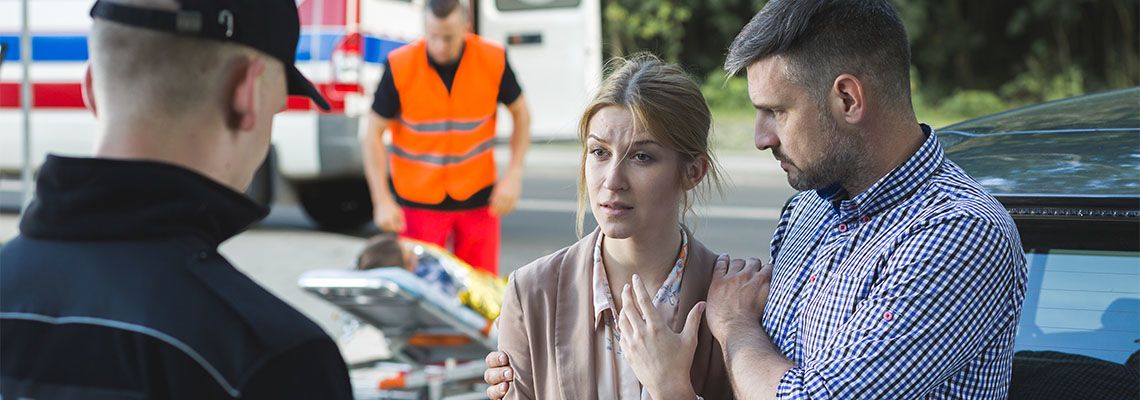
Information You Should Ask Witnesses
A car accident can be a traumatic experience, especially if it was not your fault. Here in Texas, injuries on the road—as well as fatalities—are an unfortunate part of life. In fact, fatalities in rural areas of Texas accounted for 51.42% of the state’s traffic fatalities in 2022. No matter where you live in Texas, this is a situation nobody wants to find themselves in.
If you've been hurt in a car wreck in Texas, it’s important to take certain steps in order to put yourself in a position to move forward. One of these steps is to reach out to witnesses. But what kind of questions should you ask witnesses? What kind of information should they provide you?
My firm—Jose Orihuela, Attorney at Law—is here to help you navigate the aftermath of a car crash. You may be able to pursue compensation for the tremendous challenges you are currently facing, from physical injuries to property damage and emotional distress. But without witness testimony backing you up, this may prove challenging.
When you’re ready to get started moving forward, contact a car accident attorney for a consultation. I’m proud to serve all of Houston, as well as surrounding areas in Texas like Clear Lake, Friendswood, League City, and Alvin
Car Accident Claims in Texas
Let's establish some important context before diving into the crucial aspects of gathering information from accident witnesses. The state of Texas operates as a "fault" state when it comes to car accident claims. This means that the party responsible for the accident, or their insurance, should typically cover the damages and injuries resulting from the accident. Establishing liability in Texas car accident cases—with the help of witnesses—can play a significant role in helping prove fault.
Another critical aspect to consider is the statute of limitations (or, time limit) for personal injury claims in Texas. The statute of limitations dictates the time within which you must file a lawsuit following a car accident. Here in Texas, this timeframe is generally two years from the date of the accident. Missing this deadline could result in losing your right to seek compensation. It's essential to act promptly.
Gathering Information After an Accident
After a car wreck, gathering accurate and detailed information is vital. This is where witnesses come into play. Witness testimony can provide essential evidence to support your claims. It's important to remember that memories fade over time, so gathering information as soon as possible is key to preserving the details of the accident.
Why exactly is witness information so important? Witness testimony can help fully establish crucial details: the sequence of events, the actions of the parties involved, and, most importantly, who was at fault. Insurance companies and courts rely on credible witness accounts to determine liability and assess damages.
With that in mind, here are some questions to ask accident witnesses to gather the information you need:
"What time did you arrive at the accident scene?"
Knowing the exact time of the accident can help establish a timeline of events and verify the sequence of actions that led to the accident.
"Where were you coming from and where were you heading when the accident happened?"
Understanding the witnesses' positions and destinations at the time of the accident can provide valuable insight into their perspective and any potential distractions or environmental factors that could have been at play.
"What were the weather and road conditions like?"
Weather and road conditions can play a significant role in car accidents. Witnesses' observations of these conditions can help determine whether they contributed to the accident.
"In your own words, can you describe in detail what you saw?"
Encourage witnesses to provide a comprehensive and unbiased account of the accident. This open-ended question allows them to share their observations and perceptions.
"Did you have a clear view of the accident? How far away were you?"
Understanding the witnesses' physical vantage point can help evaluate the reliability of their observations. Witnesses with a clear and unobstructed view may provide more credible testimony.
Additional Information to Gather From Witnesses
In addition to the core questions above, there are other details you should try to collect from witnesses:
Do your witnesses have any expertise that might be relevant?
If a witness possesses specialized knowledge, such as experience in road safety or accident reconstruction, their testimony could potentially carry more weight. Their expertise can help clarify complex technical aspects of the collision.
Do your witnesses know anyone involved in the accident?
It's essential to determine if witnesses have any personal relationships with the parties involved in the accident. Knowing this can help assess potential bias or conflicts of interest.
Do your witnesses have alternate ways of getting in contact with them?
Collecting witnesses' contact information, such as their name, phone number, and email, is crucial for follow-up inquiries, depositions, or court appearances. Be sure to obtain more than one way of getting in touch with your witnesses so you can reach out to them reliably.
Reach Out for Skilled Representation
No one should have to navigate a car accident in Texas on their own. At Jose Orihuela, Attorney at Law, I’m ready to help you pursue the financial compensation you deserve. As an experienced car accidents attorney, I’ve developed a deep understanding of Texas law—as well as a passion for fighting for the underdog. Set up an appointment with me today.
